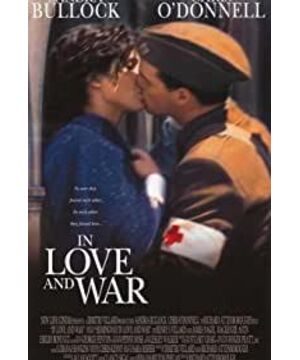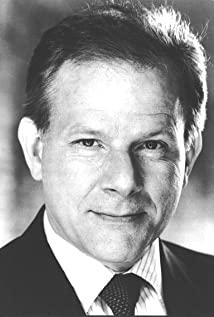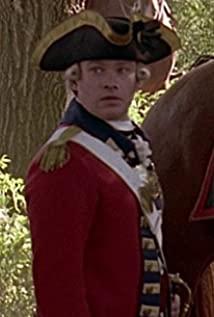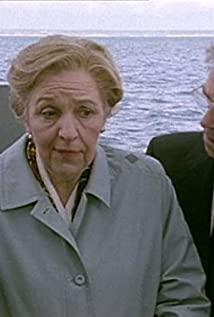Explore Hemingway's true inner world—the passionate first love—from both text and film levels. I'm sorry, but this review is actually an assignment. Some of the points of view are based on "Xu Zidong's Modern Literature Class" and "The Long Day Will End" that I read during the holidays. It can be regarded as a small report on reading this winter vacation! Share it with your friends. If you have any ideas, please criticize and correct them. :)
——A comparative analysis of the novel "A very short story" and the movie "In Love and War"
A Very Short Story
One hot evening in Paduathey carried him up onto the roof and he could look out over the top of the town. There were chimney swifts in the sky. After a while it got dark and the searchlights came out. The others went down and took the bottles with them. He and Luz could hear them below on the balcony. Luz sat on the bed. She was cool and fresh in the hot night.
Luz stayed on night duty for three months. They were glad to let her. When they operated on him she prepared him for the operating table; and they had a joke about friend or enema. He went under the anestheticholding tight on to himself sohe would not blab about anything during the silly, talky time. After he got on crutcheshe used to take the temperatures so Luz would not have to get up from the bed. There were only a few patients and they all knew about it. They all liked Luz . As he walked back along the halls he thought of Luz in his bed.
Before he went back to the front they went into the Duomo and prayed. It was dim and quiet, and there were other people praying. They wanted to get married, but there was not enough time for the banns, and neither of them had birth certificates .
They felt as though they were married, but they wanted everyone to know about it, and to make it so they could not lose it.
Luz wrote him many letters that he never got until after the armistice. Fifteen came in a bunch to the front and he sorted them by the dates and read them all straight through. They were all about the hospital, and how much she loved him, and how it was impossible to get along without him, and how terrible it was missing him at night.
After the armistice they agreed he should go home to get a job so they might be married. Luz would not come home until he had a good job and could come to New York to meet her. It was understood he would not drink, and he did not want to see his friends or anyone in the States. Only to get a job and be married. On the train from Padua to Milan they quarreled about her not being willing to come home at once. When they had to say goodbye, in the station at Milan, they kissed goodbye, but were not finished with the quarrel. He felt sick about saying goodbye like that.
He went to America on a boat from Genoa. Luz went back to Pordenoneto open a hospital. It was lonely and rainy there, and there was a battalionof arditi quartered in the town. Living in the muddy, rainy town in the winter, the major of the battalion made love to Luz, and she had never known Italians before, and finally wrote to the States that theirs had been only a boy and girl affair. She was sorry, and she knew he would probably not be able to understand, but might someday forgive her, and be grateful to her, and she expected, absolutely unexpectedly, to be married in the spring. She loved him as always, but she realized now it was only a boy and girl love. She hoped he would have a great career and believed in him absolutely. She knew it was for the best.
The major did not marry her in the spring, or any other time. Luz never got an answer to the letter to Chicago about it. A short time after he contracted gonorrhea from a salesgirl in a loop department store while riding in a taxicab through Lincoln Park .
Questions
1. When and where did the story take place? What was the background of the story?
2. What or who do you think is responsible for the failure of the love between the protagonist and Luz? What kind of person is the protagonist? And Luz?
3. Who is the narrator? What is the relation between the narrator and the protagonist? Is the story's point of view objective or subjective?
Foreword:
Ernest Miller Hemingway's "Little Novel" is a veritable super short story as its name. The full text of the novel is only six hundred and thirty-three words, but it tells a surprising and difficult part in calm and concise brushstrokes. Flat love story. In 1996, Richard Attenborough of the United Kingdom took this as a blueprint and adapted it into a unique style with reference to "Hemingway's Love in War: The Diary of Agnie Kowsky" written by Henry Villa and Thomas Nagle. The film "Love and War" was nominated for Best Picture at the 47th International Film Festival Golden Bear Award. The novel and the film complement each other and have their own characteristics. This article compares and analyzes the similarities and differences between the novel and the film, and explores the deeper meaning hidden behind the text and the screen.
Novel introduction: The background of the story is set during the First World War. In Padua, Italy, a wounded American soldier falls in love with Luz, a hospital nurse. All kinds of factors missed the hand, and they did not get married. Luz later fell out of love but failed to marry his new love, and the soldier eventually contracted a venereal disease after having sex with a saleswoman in a taxi.
\
Synopsis of the movie: The story takes place in Italy in 1918. Hemingway came to the front line with full of blood and threw himself into the cruel and fierce war. In an accident, Hemingway was hit by a shell and was taken to a field hospital with serious injuries. There, Hemingway met a beautiful nurse named Agney. Agney's shrewdness and gentleness soon made Hemingway fall in love and launched a fiery offensive against the former. By chance, Hemingway's literary talent finally moved Agney, but it didn't take long for Agney and Caraccio to be transferred to the front-line medical station, while Hemingway was sent home.
1. Different perspectives, subversive stories
Hemingway emphasizes the objectivity of his writing and the subtlety of his themes with his unique writing style. He always uses the most concise and simple language for line drawing, and the limited form leads people to think, so that his characters are vivid on paper and complex. Emotions can be displayed, sincere enthusiasm can be vented, and confusion and pain can be comforted. As always, "Little Novel" seems to be the author who presents the love story of the heroine Luz and the hero "he" during the war to readers with the same subtle words and few words without emotion. However, if you look closely, this novel does not objectively describe this battlefield love from a third-person perspective on the surface:
Under the influence of Western philosophical thought of logic-centrism, the critique of binary oppositions occupies an important seat. In this novel, the binary opposition between "he" and Luz presents the story through differences. The unnamed male protagonist "he" is Hemingway's classic tough guy image of great masculinity: he is taciturn, and he is not heard in the whole novel; But in the face of his beloved, he was gentle and considerate, and in the middle of the night, he helped Lutz take the temperature of the wounded; In the end, he contracted a venereal disease with a different kind of "revenge". This description labels the male protagonist as a victim, while the portrayal of the female protagonist Luz runs counter to Hemingway's "If you talk about it, you lost it." maxim: Narrative In the beginning, Luz's letters to "him" were full of timeless vows and heartbreaking misses, which were in stark contrast to her unbelief and empathy at the end. The women Luz represented seemed Hypocrisy, snobbish, ruthless.
"In the case where the narrator is "reliable", the narrator's emotional inclinations and value judgments are consistent with the author's or the overall inclination embodied in the work, and the reader can generally equate the narrator's voice with the author's voice. " [Kazuo Ishiguro's "The Long Day Will End", translated by Feng Tao] Is the narrative of this "Little Novel" reliable? Hemingway's deliberately unreserved exposure of Lutz's words and actions was not an unintentional fault, but it was actually intentional. Judging from the wording of the article, the behavior of the subject "he" is actually the trajectory of the author's own "me". For example, "On a hot summer night, Luz sat on the bed and looked fresh and cool" was observed from "his" point of view. American literary critic Wayne Booth named and discussed "unreliable descriptions" for the first time in his narratological masterpiece "The Rhetoric of Fiction": "When the narrator's words and deeds correlate with The narrator is reliable when the paradigm of the work (that is, the paradigm of the implied author) is consistent, otherwise it is unreliable." Therefore, Hemingway's own deliberate avoidance of the description of "him" reveals that the novel is based on a third-person perspective The subjective depiction of (i.e. the first-person perspective) is unreliable.
On the other hand, when the 1996 movie "Love and War" was approaching its "curtain call", the heroine said in a narrative tone: "After I parted from Lake Warren, I never saw Ernie again." "The "Lutz" perspective in the film explains the story, and fights back against Hemingway's unilateral rhetoric. The movie shows us the woman's inner struggle after referring to Agnie Koski's diary: she loves him, but the difference in three views caused by the seven-year age difference between the two makes the heroine distressed: "I don't want to be him. mother.” In fact, she needed a mature husband more than a naughty boy.
As a result, the film becomes more objective. The "golden woman" who betrayed love in the novel is actually just an ordinary field nurse who is not so brave to give up material life to pursue love.
2. Prejudice – an excuse for tragedy
Of Schopenhauer's three theories of tragedy, the first two are appalling malice and a terrible fate, and the third misfortune may simply be caused by the different positions of the characters in the play, by their relationship; dreadful mistakes or unheard-of accidents are not necessary, nor are characters who are as vicious as possible; but only morally ordinary people, who are placed in frequent situations that place them in mutual Opposite positions, they are forced to know by this position, but they clearly see each other but cause disaster for each other, and at the same time, it is impossible to say that one aspect is wrong. [Schopenhauer, The World as Will and Representation, translated by Shi Chongbai] Among the three tragedies, Schopenhauer prefers the birth of the third tragedy, because for the first two tragedies people can avoid these forces and There is no need to restrain oneself, but the latter is entangled around people and silently leads to tragedy. In "Little Novel", Luz played the role of "heartless man", and the film shows more of the third tragedy: neither party is a villain, but only thinks about problems from their own position - nineteen-year-old The male protagonist regards love as life, and the twenty-six-year-old female protagonist understands that life is not just love. This war is the beginning of their love and the tragedy is repeated.
In "Little Novel", Hemingway narrates the story in a seemingly objective tone, but in fact has pushed women to the forefront of public opinion. In his parting letter to "him", Luz repeatedly emphasized that the love between them was just a boy and a girl love, and used exaggerated words to express his inner yearning for marriage with his Italian fiancé. After receiving the letter, "he" contracted gonorrhea after having sex with a saleswoman in an attempt to get revenge on Luz. At this time, "his" both physically and mentally were destroyed, and all of this was caused by the beauty. The author's male protagonist finally gives up on himself and is in sharp contrast to the tough guy who "a person can be destroyed, but not defeated." Although Hemingway did not clearly write harsh words for women, the space left for readers under the iceberg has inevitably condemned women to the crime of "prosperity".
Hemingway’s prejudice against women—intentional, hypocritical, ruthless, and snobbish—has become the root cause of the tragedy in the text, and after watching the movie “Love and War” after “remembering the pain”, it is not difficult to find that this is only Hemingway’s one-sided remarks . Although he expresses sympathy for the helplessness and pain of women in the conflict between the sexes in many of his works, such as "Cat in the Rain". But as far as this novel is concerned, Hemingway still stands on the commanding heights of the patriarchal society to deal with female roles - male as the theme, women are marginalized by the object, it seems that the women in the novel hold the dominant power and restrict the spirit of "he" With the physical state, in fact, this is just the author's self-deception. We saw from "Love and War" that the male protagonist lied to his friends out of face when he had not yet established a relationship with the woman. He had a sexual relationship with the female protagonist, and he hid this love in the heart of the novel and was unwilling to tell others. The irresponsible "he" once again created a contrast. The male protagonists in the novel and the film are unlovable, but despite this, the women who seem to have the initiative still cannot escape the male gaze of the author's pen.
3. Gender redemption
For a long period of time, women were seen as appendages to men (in the Bible, Eve was a rib in Adam). Men are rational, women are emotional; men are wise, women are ignorant; men are brave, women are cowardly... Undoubtedly, in these stereotypes, men always play majestic in the image of heroes Kings and husbands go to redeem princesses and wives who are still in peril. However, in "Little Novel" and "War and Love", women assume different roles.
In the film, women volunteer as Red Cross members to serve as nurses on the front lines to save the dying. Just like the children lying on the backs of their elders at the beginning of the film, they think these nurses are angels from heaven. At this time, women seem to have broken the inherent stereotype of women. is a brave redeemer. At the shallow level, the heroine and the doctor fought hard to save Hemingway's leg that was about to be sawed off, but for Hemingway, who regarded disability as death, the heroine successfully redeemed his body; at the deep level, in life and death, life and death During the bloody and cruel war, the heroine gave Hemingway the hope of life and yearning for life, and the heroine redeemed him once again.
In Ibsen's "A Doll's House", Nora, who was unwilling to be a vase, chose to run away. This is undoubtedly a symbol of the rise of female consciousness in the history of literature, but Nora's life after running away is rarely concerned. In fact, most women still regard marriage as a vehicle for realizing the value of life: in Jane Austen's "Pride and Prejudice", the ladies in the manor gather at a ball, hoping to find a prominent nobleman; Chinese writer Ling Shuhua's "Pride and Prejudice" In Embroidered Pillow, an eldest lady embroidered a beautiful pillow just to send it to a wealthy family. If she can be selected, it will be a major event of marriage; Yan Geling's "Fusang" has a different definition of marriage: "My The times are different from yours. You see, so many women secretly set prices for themselves, cars, real estate, and millions of years of income. Well, it's a deal. This concept of betrayal has been successfully stolen and turned into marriage. ." In the cage of reality, Luz in "Little Novel" is still in the predicament of being bound by marriage, after all, no one will pay for her "Nala" bravery. Instead of relying on others to save, save yourself.
Between the search and the sustenance, the yearning and the disappointment, this unrequited grief ignited Hemingway, who "became an angry man, a wise and stubborn adventurer, who became the most famous of his time. Writer." In the intertwined life trajectories, Agnie Koski helped Hemingway to the starting line of the writer, which is also a kind of redemption.
Conclusion: "Little Novel" is an indispensable part of Hemingway's feelings and creation. It expresses Hemingway's turbulent inner current in his creation with "ruthless" words. "Love and War" can be regarded as a tragedy of separation in the human emotional world, but to a certain extent it is also a redemption. Love and war seem to be irreversible contradictions in tragedy, but the beauty in the period is the hymn of life, and the pain after that is also a required course for growth, and the two complement each other. Just as this novel and this film are both classics, future generations will delve into them and have endless aftertastes.
View more about In Love and War reviews











